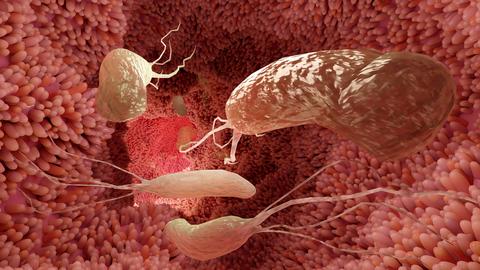Gastric cancer prevention by community eradication of Helicobacter pylori
Pan KF et al, Nat Med. 2024 [ahead of print]
This population-based intervention trial performed in a Chinese high-risk population revealed that the incidence of gastric cancer can be reduced by mass screening and eradication of H. pylori.
Gastric cancer is a leading cause of cancer-related deaths in China. Affecting more than 40% of the world's population, Helicobacter pylori is a major risk factor for gastric cancer. While previous clinical trials indicated that eradication of H. pylori could reduce gastric cancer risk, this remains to be shown using a population-based approach. The authors conducted a community-based, cluster-randomized, controlled, superiority intervention trial in Linqu County, China, with individuals who tested positive for H. pylori using a 13C-urea breath test randomly assigned to receiving either (1) a 10-day, quadruple anti-H. pylori treatment (comprising 20 mg of omeprazole, 750 mg of tetracycline, 400 mg of metronidazole and 300 mg of bismuth citrate) or (2) symptom alleviation treatment with a single daily dosage of omeprazole and bismuth citrate. H. pylori-negative individuals did not receive any treatment. The incidence of gastric cancer was examined as the primary outcome. A total of 180,284 eligible participants from 980 villages were enrolled over 11.8 years of follow-up, and a total of 1035 cases of incident gastric cancer were documented. Individuals receiving anti-H. pylori therapy showed a modest reduction in gastric cancer incidence in intention-to-treat analyses (hazard ratio [HR] = 0.86, 95% confidence interval [CI]: 0.74–0.99), with a stronger effect observed for those having successful H. pylori eradication (HR = 0.81, 95% CI: 0.69–0.96) than for those who failed treatment. Moderate adverse effects were reported in 1345 participants during the 10-day treatment. The authors observed no severe intolerable adverse events during either treatment or follow-up.

These findings suggest the potential for Helicobacter pylori mass screening and eradication as a public health policy for gastric cancer prevention.